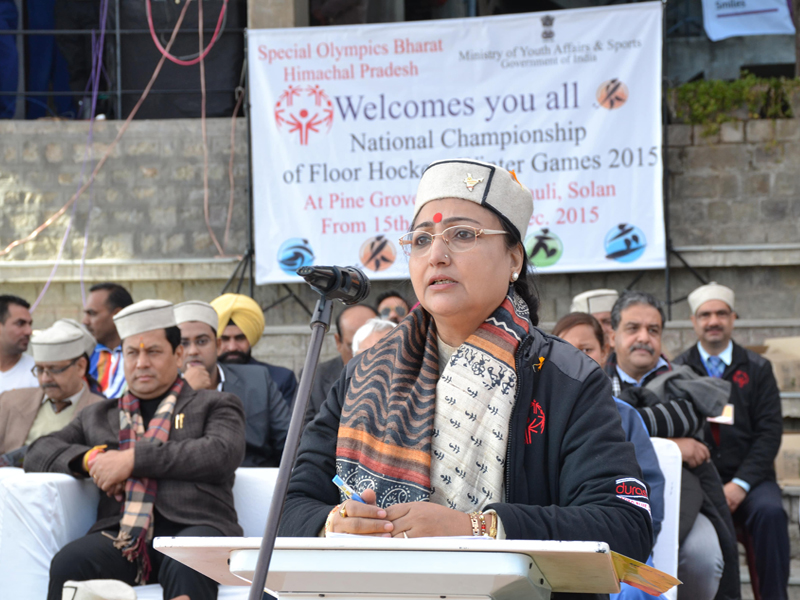21st June 2021, New Delhi: Earlier this year, Dr Mallika Nadda took over as Chairperson of Special Olympics Bharat, succeeding Mr Satish Pillai. Since assuming the role, Dr Nadda has taken on the challenge of preparing the SO Bharat contingent for the Kazan Winter World Games 2022 amidst a global pandemic.
A vocal activist, Dr Nadda has dedicated more than 30 years working for empowerment of the differently-abled and the under-privileged. Her involvement with Special Olympics Bharat can be traced back to her mother Ms. Jayshree Banerjee who was instrumental in garnering support for the federation in its formative stages. In 2002, Dr Nadda set up the Himachal Pradesh chapter of Special Olympics Bharat, and has since then taken the lead in organising Snow Sports and Winter Games, enabling higher athlete participation in the Special Olympics World Games.
She has been felicitated with many accolades for her social service, including the Rajiv Gandhi Manav Sewa Puraskar (2010), awarded by the Ministry of Women and Child for exemplary work in the field of child development. Dr Mallika Nadda is also an academician with a doctorate in history and special interest in urban studies and is associated with the Himachal Pradesh University.
“Since its inception, Special Olympics Bharat has been a ground-breaking movement, giving a platform and a voice to people with intellectual disabilities in India.”, says Dr Mallika Nadda. “Having been a staunch supporter of the federation for many years, it gives me immense pride and gratitude to take over as Chairperson, and work in sync with the Special Olympics International Global Strategy 2021-24, towards realising our vision of greater inclusion and equal opportunity.”
Dr Nadda takes charge in a crucial year for Special Olympics Bharat as they gear up for the 2022 Special Olympics World Winter Games to be held in Kazan, Russia. 47 athletes from India will compete across six disciplines – Alpine Skiing, Snow Boarding, Snow Shoeing, Figure Skating, Speed Skating, and Floor Ball. With limited access to cold climate conditions in India and the ongoing pandemic, the federation is working hard to overcome the challenges and ensure the athletes are well prepared.
Starting this year, Special Olympics is also implementing a new global strategy focussed on digitising the movement and improving the quality and reach of local programming, among other driving factors. The Special Olympics Global Strategy 2021-24 has two main goals – a) improve local sports participation and well-being to strengthen communities, and b) remove barriers to inclusion and expand reach through digital technology.


